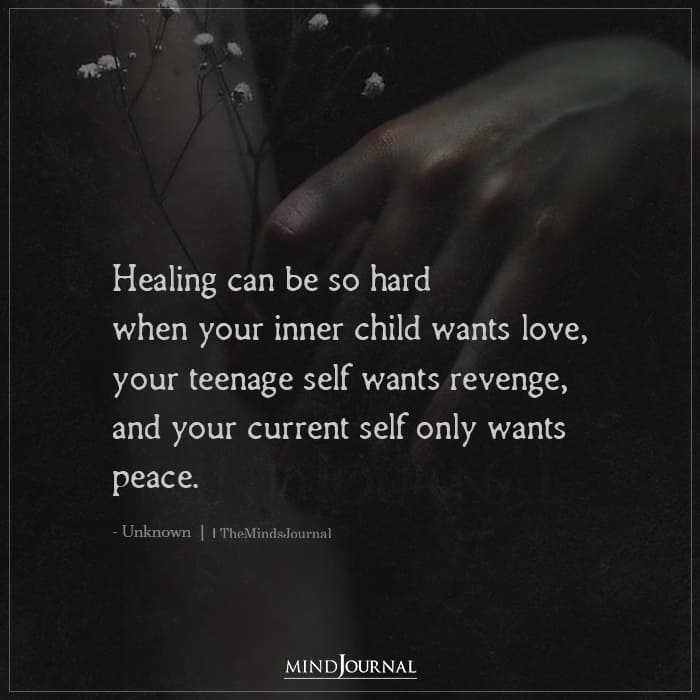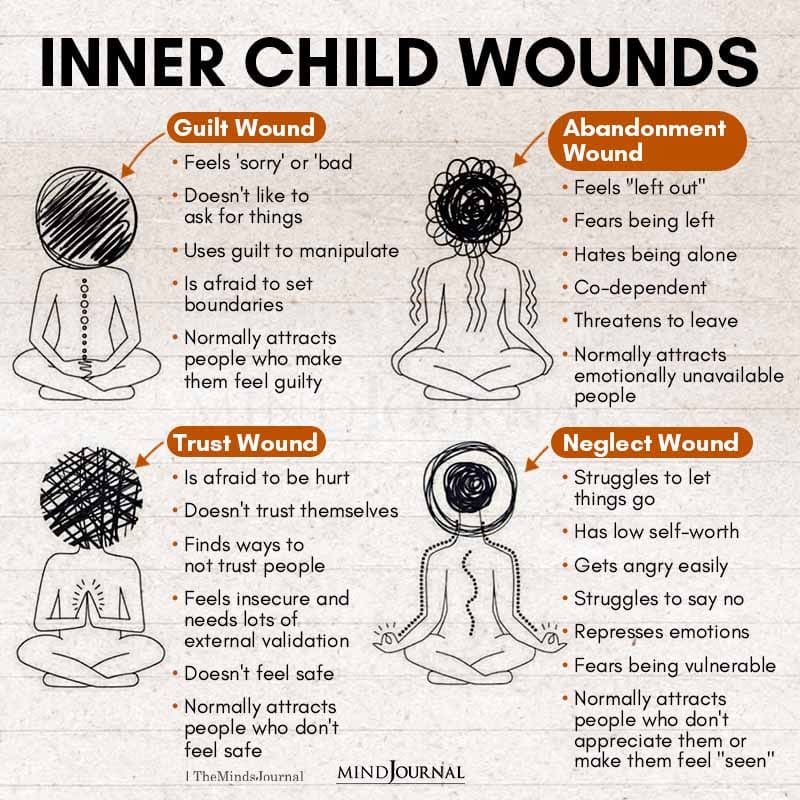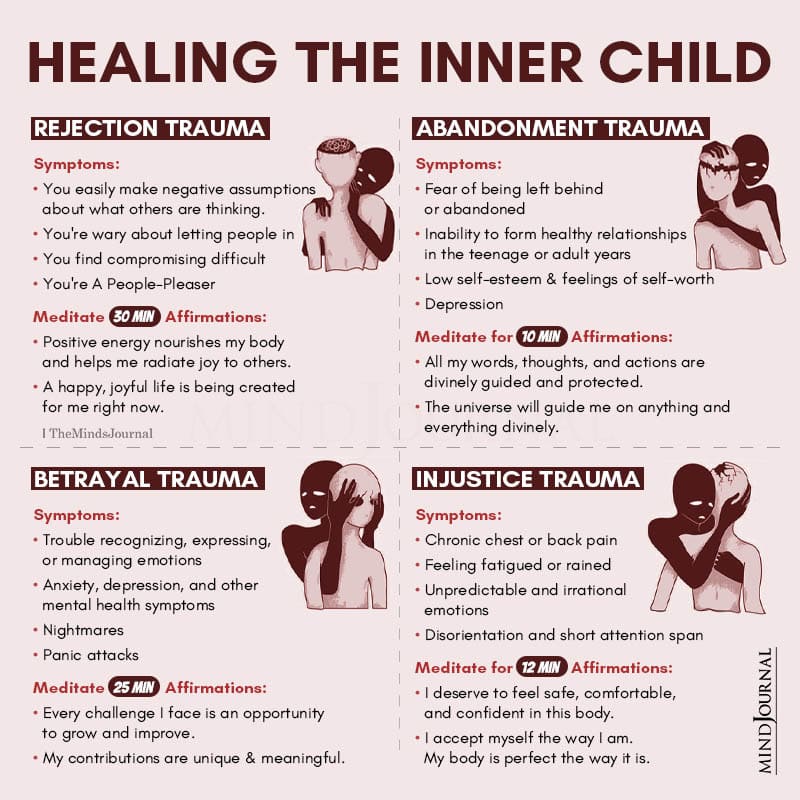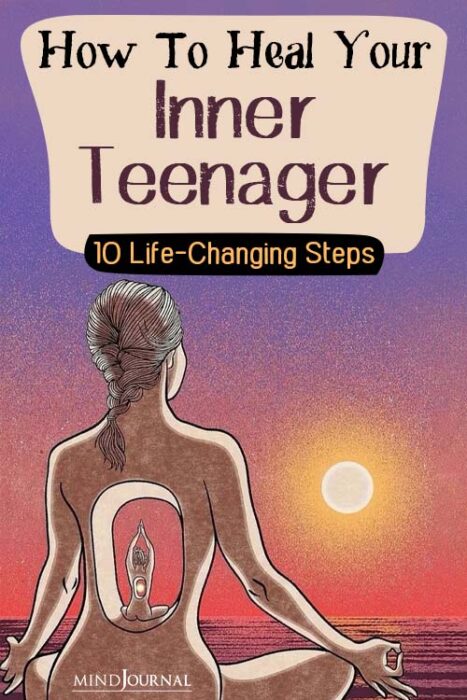Do you ever feel overwhelmed by emotions, react impulsively, or experience a sense of insecurity and self-doubt? These are signs that your inner teenager might be in need of healing. Let’s explore how to heal your inner teenager.
Hey there, soul wanderer! In life, we often feel stuck, anxious, fearful, and out of touch with our inner selves. This can make us behave and react in certain ways that are reminiscent of our teenage years. This might happen due to certain negative experiences, traumas, and emotional wounds that deeply affected us when we were a teenager.
Just like a physical wound, our emotional wounds from our teenage years can linger and affect us well into adulthood. This is why healing is absolutely crucial for self-discovery and empowerment. But how to heal the inner teenager?
Well, fear not, because today, we will explore what the inner teenager is, why it’s important to heal this aspect of ourselves and provide practical strategies to nurture and empower your inner teenager.
Understanding the Inner Teenager
The inner teenager refers to a psychological and emotional aspect of you that holds onto teenage feelings and behaviors, even as you grow older. It involves unresolved emotions, beliefs, attitudes, and patterns of behavior that originated during your teenage years.

It is a manifestation of the transitional period between adolescence and adulthood which is characterized by different challenges, like identity formation, peer pressure, and emotional turbulence.
Related: The 7 Jungian Inner Child Archetypes: Which One Is Your Inner Child?
This inner teenager might arise as feelings of rebellion, insecurity, or a desire for independence. It can also involve impulses and reactions that are characteristic of teenage years, such as mood swings, idealism, or seeking validation from others.
This aspect of ourselves often influences how we navigate relationships, make decisions, and cope with challenges as adults. Our inner teenager influences how we perceive ourselves, engage in relationships, and cope with life’s challenges. When unaddressed, it can lead to self-limiting beliefs, emotional triggers, and difficulties in forming healthy connections with others.
This is why it is important to learn how to heal your inner teenager as understanding and acknowledging our inner teenager can help us recognize patterns in our behavior and emotions, allowing us to cultivate greater self-awareness and make healthier choices in our adult lives.
Why Healing Your Inner Teenager Matters
So why should you even heal the inner teenager? Healing your inner teenager is crucial for addressing unresolved issues from adolescence and fostering emotional growth and well-being in adulthood. Here are a few reasons why –
1. Breaking Cycles
Unresolved issues from our teenage years can create recurring patterns in our adult lives. These patterns may include seeking validation from others, fear of rejection, or difficulty setting boundaries.
By healing our inner teenager, we break free from these cycles and create healthier patterns of behavior and thought.
2. Enhancing Self-Awareness
Healing our inner teenager involves examining our past experiences and understanding how they shaped our present self. By gaining insight into our emotional triggers, insecurities, and fears, we cultivate self-awareness.
This self-awareness empowers us to make conscious choices, respond rather than react, and live authentically.
3. Strengthening Emotional Resilience
Our inner teenager often carries unresolved emotional wounds. By addressing and healing these wounds, we build emotional resilience. This resilience enables us to navigate life’s challenges with greater ease, bounce back from setbacks, and maintain a positive outlook.
Related: Why Healing your Inner Child is Crucial for Self-Growth

How to Heal Your Inner Teenager? 8 Effective Strategies
Ever wondered how to mend your inner teenager? Here are some strategies for addressing past wounds and nurturing emotional growth in adulthood –
1. Self-Compassion
Start by offering yourself the same compassion and understanding you would extend to a close friend. Acknowledge that your inner teenager went through challenging times and may still carry pain. Treat yourself with kindness, embrace imperfections, and practice self-care.
2. Reflect on Past Experiences
Take time to reflect on your teenage years and identify significant events or emotions that still impact you today. Journaling can be a powerful tool for exploring your thoughts and feelings. By gaining clarity on your past, you can begin to release emotional baggage and create a new narrative.
3. Re-parenting
Imagine yourself as a loving and supportive parent to your inner teenager. Provide the guidance, nurturing, and reassurance that you needed during that time. Offer words of encouragement, validate your emotions, and create a safe space for growth and healing.
4. Inner Dialogue
Pay attention to your inner dialogue and challenge negative self-talk. Replace self-criticism with self-compassion and positive affirmations. Practice nurturing and empowering self-talk to build a healthier relationship with yourself.
5. Emotional Release
Allow yourself to experience and express emotions that were suppressed or invalidated during your teenage years. Engage in activities like journaling, art, or physical exercise to release emotional energy and promote healing. This is how to heal your inner teenager.
6. Seeking Support
Consider seeking support from a therapist, counselor, or support group specializing in inner child work. They can provide guidance, tools, and a safe space for deeper healing and growth.
7. Forgiveness
Forgiving yourself and others involved in past painful experiences is a transformative step towards healing your inner teenager. Holding onto resentment only perpetuates emotional wounds. Choose forgiveness as an act of liberation and reclaim your emotional well-being.
8. Embracing Growth Opportunities
Recognize that healing your inner teenager is an ongoing process. Embrace opportunities for growth, learning, and self-improvement. Engage in personal development activities, such as workshops, reading self-help books, or attending therapy sessions, to continue nurturing your inner teenager.
Related: Inner Child Work: 5 Ways To Heal The Different Types Of Childhood Trauma
Takeaway

Healing your inner teenager is a transformative journey that allows you to reclaim your emotional well-being, cultivate self-compassion, and create a fulfilling life.
By acknowledging, understanding, and nurturing your inner teenager, you can break free from past limitations, embrace personal growth, and empower yourself to live authentically.
Remember, it’s never too late to heal and nurture the wounded teenager within you. Start today and embark on a path of emotional liberation and empowerment.
Frequently Asked Questions (FAQs):
How do I start healing my inner child?
To begin healing your inner child, offer love, compassion, and validation to your younger self, nurturing emotional wounds with kindness.
How do I reconnect with my inner child?
Reconnect with your inner child by engaging in playful activities, exploring creativity, and embracing spontaneity with curiosity and joy.
How do I know if my inner child is wounded?
You may recognize a wounded inner child through patterns of self-sabotage, low self-esteem, or emotional triggers rooted in past experiences.









Leave a Reply
You must be logged in to post a comment.